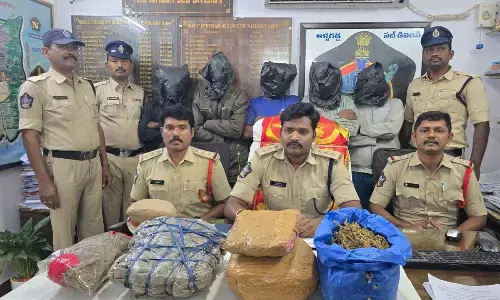Be free from your mistakes

In Srimad Bhagwatam, there is a story of King Ajamila. He had many vices. When he was on his death-bed, he called his son who was named ‘Narayan.’ And when he uttered the Divine’s name, he got liberated.
In Srimad Bhagwatam, there is a story of King Ajamila. He had many vices. When he was on his death-bed, he called his son who was named 'Narayan.' And when he uttered the Divine's name, he got liberated.
This story builds trust in people that however their past has been, there is no need to waste time in repenting or being guilty. Even at the last moment, if you chant the Divine's name, you have a chance to be liberated. The story teaches you not to be guilty of the mistakes you have committed in your past.
Knowledge of a mistake comes, when you are innocent and in the present moment. When you are innocent and in the present moment, then you are out of the mistake already. Instead of brooding over the past, just wake up and acknowledge it.
Move forward and don't get stuck in blaming yourself or others. It is like you are sitting with a garbage can and ready to throw it on someone. But they return it to you. It is like volleyball. You throw the ball, and the ball comes back to you again. This game goes on. If you want to get out of this game, acknowledge the mistake.
What generally has been practised is to justify our mistakes so that the guilt is not felt. It doesn't work that way. Whatever justification you give, the guilt lingers on. You resist the guilt and it continues and then distorts your behavior deep inside. You have all the right to feel miserable for the mistake you have done. Remain totally miserable for one whole moment, 10 or 25 minutes, not more. And then, you will be out of it.
Acknowledge a mistake without justifying it. This does not remove the guilt as the justification is superficial. It makes you feel even more guilty. Be one hundred per cent with the guilt and that pain will become like a meditation and relieve you from the guilt, bringing in freedom.
Now, how do you deal with a person who has committed a mistake? Do not tell a person a mistake he already knows and make them feel guilty, defensive or resentful, as this will only create more distance. You should only point out the mistake of a person who is ignorant about it but would want to know.
Often people are aware of the mistakes they have committed, but they do not want anyone to point it out to them. Before pointing out the mistake of a person, see whether your comment in any way will help to improve the situation, foster love or bring harmony.
Also, don't see intention behind other's mistakes. When somebody does something wrong, often we think they did it intentionally. When we see from a broader perspective, every culprit is also a victim. They may be a victim of lack of education or information, too much stress and narrow-mindedness.
All these would cause someone to make a mistake. A wise man, if he sees mistakes in others, helps them to come out of it in a compassionate manner. But a fool is happy if someone else does a mistake and takes pride in it and announces to the world. A wise man always praises others. Wisdom is uplifting the spirit. When you are centered, you always uplift everybody around you.
Save your mind. When the mind is established, you cannot make mistakes even if you want. With the knowledge of the self, all negative emotions like fear, guilt, anger and sorrow disappear.















